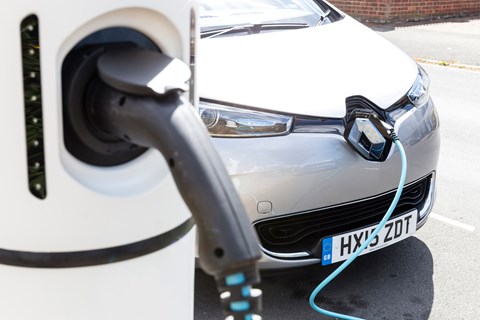► UK not ready for EV uptake
► Brownouts in strained areas possible
► New report from Green Alliance
If you’re looking to buy a new plug-in or electric car, you could be contributing to a considerable future strain on the UK’s power grid, according to a new report by the independent Green Alliance.
According to the lengthy 40-page report, the UK’s power infrastructure isn’t ready for a predicted surge in electric cars on driveways in the next couple of decades. Electric vehicles and plug-in cars are being added to more manufacturer’s ranges and are becoming cheaper to buy and easier to own, so increase in electricity demand could mean expensive upgrades are needed in the near future in order for the grid to cope with more electric vehicles on charge at once.
Green Alliance compares how the UK is managing electricity demand and provision for EVs compared to other countries, and claims it doesn’t fare well: ‘matching 21st century technology with 20th century energy markets is a recipe for disaster’, it says.

The town of Lightwater in Surrey and its 6800-strong population is cited as an example, where if around 900 electrified cars ended up on the driveways and in garages of residents, it is thought that the electric grid would not be able to cope, leading to more frequent electricity imbalances and ‘brownouts’. That would lead in turn to damage of power lines and substations, and associated costly repairs.
Studies in other countries have shown that ‘if as few as six closely congregated vehicles charge near a sensitive node at peak times, this may place more local demand than the system can handle.’
Norway, for example, has the highest concentration of full-electric cars in the world, and even it is still straining under the pressure, particularly in tourist hotspots at peak times. Small villages in the country were even threatened by one of the country’s energy suppliers with charges of at least £4000 if residents wanted fast chargers in the area, due to ‘network reinforcement costs.’
In the UK, these reinforcement costs could hit £36bn by 2050 if we steam toward the predictions seen in the report. The Green Alliance is urging the government to think ahead about electric infrastructure in order to ease the growing pressure, including developing smaller-scale, localised energy generation projects to ease the strain. Texas, for instance, is using EV batteries to support the power grid when it’s struggling, and California curtails the speed at which cars are charged in certain areas in order to avoid imbalances.
Check out all our technology news